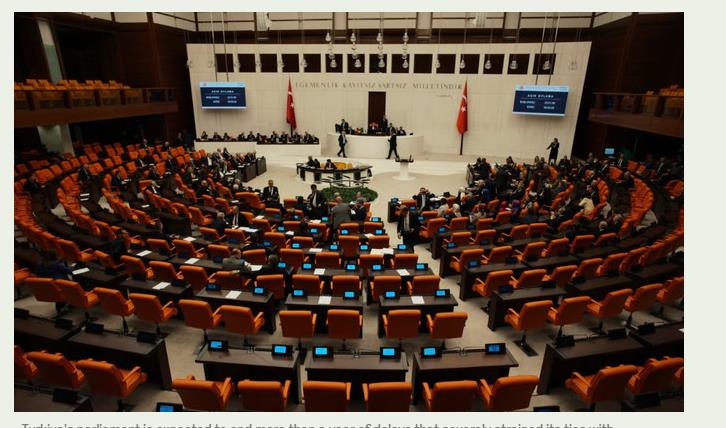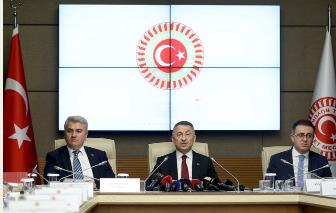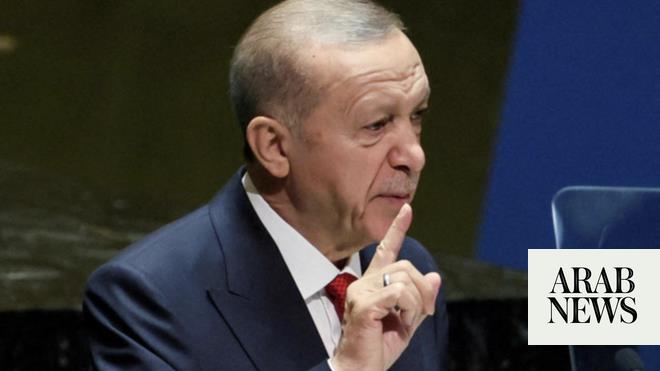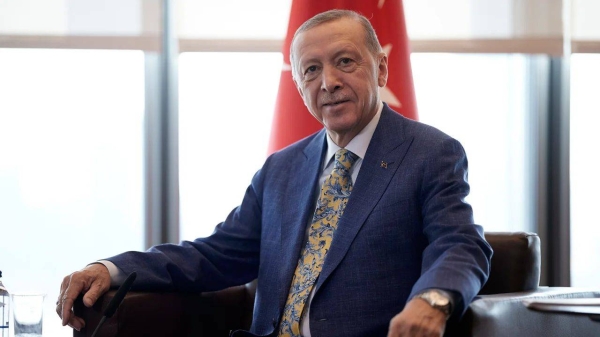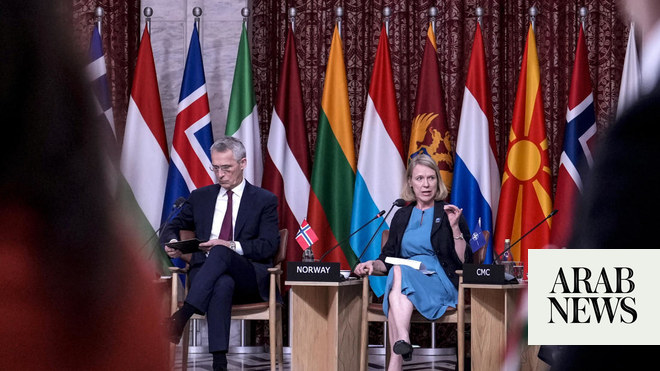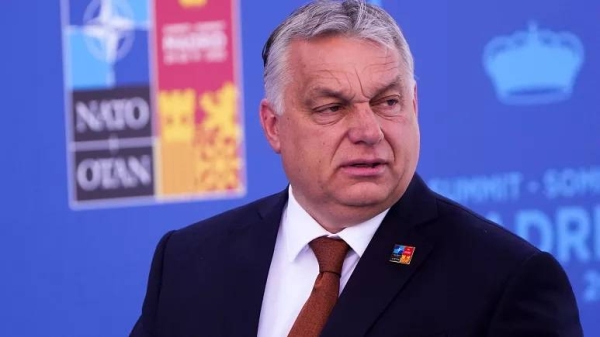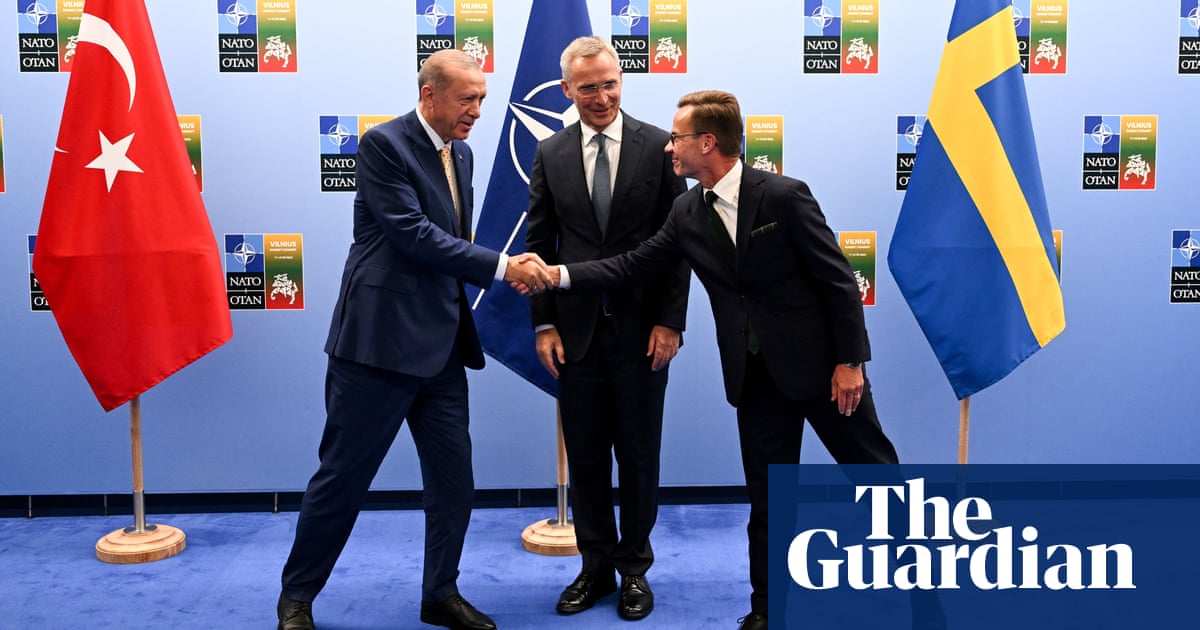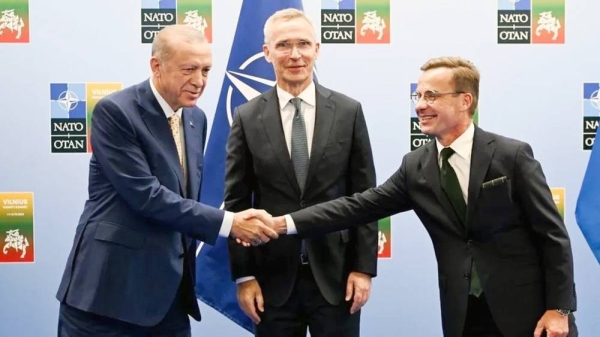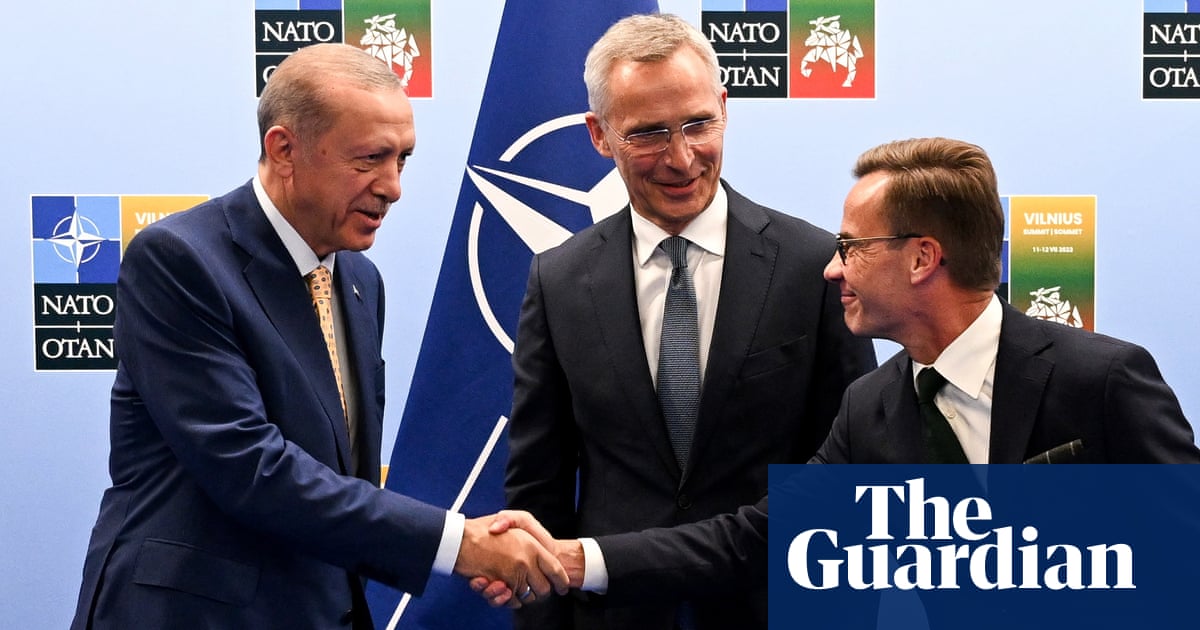
The Turkish parliament has given its long-awaited approval to Sweden’s membership of Nato, bringing the Nordic country significantly closer to joining the western military alliance after months in limbo.
Three months after Recep Tayyip Erdoğan submitted a bill on approving membership to parliament, MPs voted in favour of ratifying it late on Tuesday night. After a four-hour debate, 287 of 346 MPs voted yes, 35 against and the rest abstained. The Turkish president is expected to sign the bill into law in the coming days.
The Swedish prime minister, Ulf Kristersson, reacted quickly to the news, saying: “Today we are one step closer to becoming a full member of Nato. Positive that the Grand General Assembly of Türkiye has voted in favour of Sweden’s Nato accession.”
Tobias Billström, Sweden’s foreign minister, said the vote was “of course good”, but that the government was now waiting for the Turkish president to sign the ratification and send it on. “Of course we are not finished with the process until it has happened, on the Turkish side,” he told Swedish broadcaster SVT.
Nato’s secretary-general, Jens Stoltenberg, welcomed the vote, saying he expected Hungary to ratify Sweden “as soon as possible”. He added: “Sweden’s membership makes Nato stronger and us all safer.”
Turkey’s approval leaves Hungary as the only country still to ratify Swedish membership. Earlier on Tuesday, the Hungarian prime minister, Viktor Orbán, hinted at progress by inviting Kristersson to visit for negotiations on the question.
In a letter, he wrote: “I believe that a more intensive dialogue could contribute to reinforcing trust between our countries and institutions thus allowing to further strengthen our political and security arrangements.”
A spokesperson for Kristersson said they did not have any comment on the invite for now, but Billström said that before responding the government would need to “think through what the letter signals”.
Sweden applied to join Nato in May 2022, at the same time as Finland, in a historic shift in its security policy prompted by Russia’s invasion of Ukraine that February.
The outgoing Finnish president, Sauli Niinistö, congratulated Sweden, writing on X, formerly Twitter, in Swedish: “I am very glad of the Turkish parliament’s vote to ratify Sweden’s Nato membership. Sweden’s membership will improve security in the Baltic region and make the whole alliance stronger. When Sweden is a member, Finland’s membership will also be completed.”
Turkey and Hungary, both of whom maintain better relations with Russia than other members of the organisation, raised objections, holding up a process that requires unanimity among Nato’s member countries. Finland finally joined last year but Ankara pressed Stockholm to toughen its stance on members of the Kurdistan Workers’ party (PKK) based in Sweden, which the US and the EU as well as Turkey deem a terrorist group.
Sweden has already signed a deal with the US giving full access to 17 of its military bases and started the Nato integration process.
Paul Levin, the director of the Stockholm University Institute for Turkish Studies, said Sweden’s Nato membership would be very significant for the Nordic country.
“Orbán has promised not to delay the process, so Turkish ratification should mean Swedish Nato accession. That will be a huge deal for a country with a long tradition of neutrality and a policy of nonalignment that it only decided to abandon in the face of increased Russian aggression,” he said. “At the same time, it has been a gradual process that began after the end of the cold war. EU accession in 1995 meant the end of neutrality for Sweden.”
However, he warned that the grappling with Ankara over Swedish membership may have a lasting impact. “This has been a trying time for relations between Turkey and Sweden and while it will be good to have it behind us, I suspect that the acrimonious process has done lasting damage to the relationship.”
Sweden’s Turkish community was divided over the issue, he added. “There are many Kurdish Swedes who have been worried that this would mean that Sweden would no longer be the champion of their cause and that Sweden would heed Erdoğan’s demands for extraditions of large numbers of Kurds. But there are also many Turkish Swedes, and some Kurds, who are happy that Sweden, as they see it, is finally getting tough on the PKK.”
Hungary’s government submitted the ratification of Sweden’s Nato application to parliament in 2022, but a final vote has been delayed repeatedly. While the decision is formally up to parliament, Orbán’s tight grip on his ruling Fidesz party means that the ratification, de facto, is in the hands of the prime minister.
Hungarian officials have in the past presented different narratives domestically about Sweden’s application, while insisting to western allies that Budapest would not be last to sign off.
A senior European diplomat said: “It is crucial this dossier moves forward sooner rather than later and there are indeed signals all remaining allies understood the importance of having Sweden in Nato as soon as possible.
“Turkey much more than Hungary is looking for specific gains in this game,” the diplomat said, adding that in the case of Budapest, “clearly the rhetoric is only for some political minor gains but cannot be sustained when facing the whole of the alliance”.




